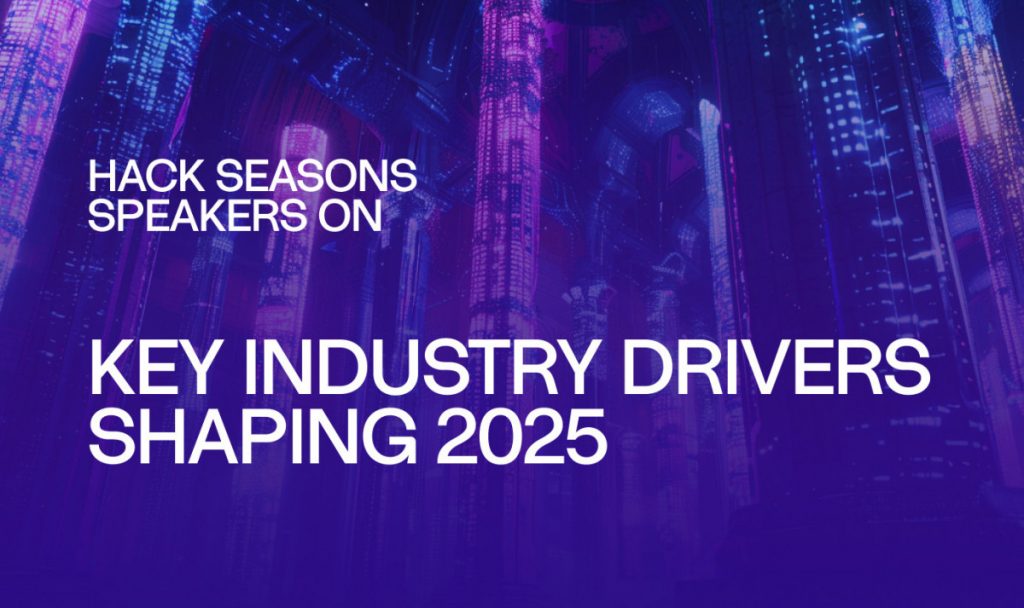The shift from institutional investment to retail engagement is a major catalyst for the blockchain revolution expected in 2025.
In Brief
As we approach 2025, the Web3 landscape is on the brink of remarkable development and innovation. Key elements such as clearer regulations and the mainstream acceptance of decentralized applications are paving the way for a future that enhances our connection with technology.

As we look ahead to 2025, experts predict that the Web3 ecosystem will experience unprecedented growth and innovation. Various factors—ranging from regulatory clarity to the normalization of decentralized applications—are expected to redefine how we relate to banking and technology while fostering global connectivity.
Changes in regulations, particularly within the United States, are set to be a significant force for market evolution in 2025. With the US being a hotspot for capital and innovation, Alan Chiu, co-founder of Boba Network, believes that a favorable regulatory stance on crypto could unlock vast new avenues for progress. Andrew Saunders, the CGMO of SKALE, supports this notion, stating that well-defined regulations will attract institutional investment and motivate traditional businesses to explore blockchain solutions.
These regulatory shifts are not just about sparking innovation; they aim to create more opportunities for businesses and major financial players. Yannik Schrade, co-founder and CEO of Arcium, discusses how AI and secure computing technologies could facilitate businesses' shift towards decentralized systems. A representative from Sonic Labs, Seg, agrees, emphasizing how a supportive regulatory framework can nurture new use cases and innovative practices.
The focus will increasingly shift towards creating decentralized applications that provide tangible benefits instead of merely speculative trading by 2025. Wali Khan, co-founder of Aylab, underscores the importance of building decentralized apps that tackle real-life challenges and actively involve users. \"With a robust infrastructure now in place, it’s time to showcase remarkable products and draw users into the Web3 space,\" he comments.
Chloe Phung, co-founder of U2U Network, suggests that blockchain technology has the potential to revolutionize industries such as AI, IoT, and telecommunications. She believes these applications will cater to genuine needs, influencing consumers beyond the Web3 enthusiast community.
In a similar vein, Marcus Le, a contributor at Viction Core, views decentralized finance as crucial for enhancing global financial access. He highlights that composability opens limitless possibilities for seamless integration across diverse sectors like social media and gaming.
While community has always been integral to blockchain, its significance is expected to grow even further by 2025. James Ross Croyle, CEO of MetaHub, points out that a vibrant community is crucial for growth and should not merely be seen as a buzzword. \"Invite your friends, family, and colleagues into your protocol. Everything we create will be deeply rooted in our community,\" he states.
This concept of inclusivity is universal. AV, CMO of Electra, envisions a future where platforms like Telegram-based exchanges help integrate underprivileged nations and emerging markets. \"We expect a significant rise in retail users from these areas,\" he remarks.
Community-Centric Models’ Ascent
Decentralized solutions are gaining traction in regions that have traditionally been marginalized by financial institutions, and user-friendliness is on the rise. Chloe Phung observes that the core principle of blockchain—eliminating centralized control—is becoming a reality, enabling the technology to make a positive impact globally.
The ongoing adoption of blockchain technology will play a vital role in future growth. Ran Yi, co-founder of Orderly Network, attributes the surge in institutional interest primarily to the emergence of Bitcoin and Ethereum ETFs. He asserts, \"The inflow of institutional capital is a transformative factor, particularly with recognized financial instruments like BlackRock ETFs involved.\"
Natalie Leung, general manager at BuzzUp, concurs, emphasizing that building trust will require a reimagining of the blockchain narrative. By showcasing superior solutions—like decentralized messaging applications that enhance privacy and performance—the sector can alleviate skepticism and attract mainstream consumers. \"We're working on tools that provide better features than Telegram and WhatsApp,\" she explains.
The intersection of blockchain and artificial intelligence is yielding surprising synergies. Ron Bodkin, founder and CEO of Theoriq, points out that integrating decentralized data into AI applications is a growing trend. He also anticipates a resurgence in decentralized finance, driven by advancements in privacy and transactions.
Yannik Schrade asserts that confidential AI will be essential in linking enterprises with decentralized frameworks, ensuring secure and private communication within blockchain ecosystems.
Looking ahead to 2025, the blockchain landscape is ready to enter a transformative phase, fueled by supportive regulations, innovative decentralized applications, AI advancements, and community strength. Industry leaders agree that this marks merely the beginning of a shift that will revolutionize how we collaborate, interact, and create value. This forthcoming wave of innovation will not only bridge Web2 and Web3 but also further the pursuit of a decentralized and inclusive future.
Blockchain and AI: A Convergence
Please remember that the details shared on this page are not intended to serve as legal, tax, investment, financial, or any other form of advice. It’s crucial to invest only what you can afford to lose and seek personalized financial guidance if you have any uncertainties. For additional information, we recommend reviewing the terms, conditions, and support resources offered by the issuer or advertiser. MetaversePost is dedicated to fair and accurate reporting, but market conditions can shift without notice.
Victoria is a seasoned writer covering a range of topics in technology, including Web3, artificial intelligence, and cryptocurrencies. Her extensive background enables her to craft insightful articles that resonate with a broad audience.
Blum marks its one-year anniversary by winning accolades for 'Best GameFi App' and 'Best Trading App' at the Blockchain Forum 2025.
Disclaimer
In line with the Trust Project guidelines Omniston addresses the fragmentation in DeFi, scaling liquidity on the TON network.







